From September 23rd to 24th, the Fifth Symposium on Experimental Research Methods in Tourism was held in the Central Campus with the theme of “Theoretical Paradigm and Practical Values of Experimental Research in Tourism”, which was initiated and hosted by the Department of Culture and Tourism of the School of Management.
Scholars from Hainan University, Sun Yat-sen University, Southeast University, Southwestern University of Finance and Economics, Xiamen University, South China Normal University, Southwestern University and Huaqiao University carried out multi-topic academic exchanges in the form of round-table forums and workshops. More than 100 researchers from universities across China registered to participate in the symposium with broadcasting live on BiliBili video platform, which synchronized online and offline dialogues with many interdisciplinary enthusiasts.
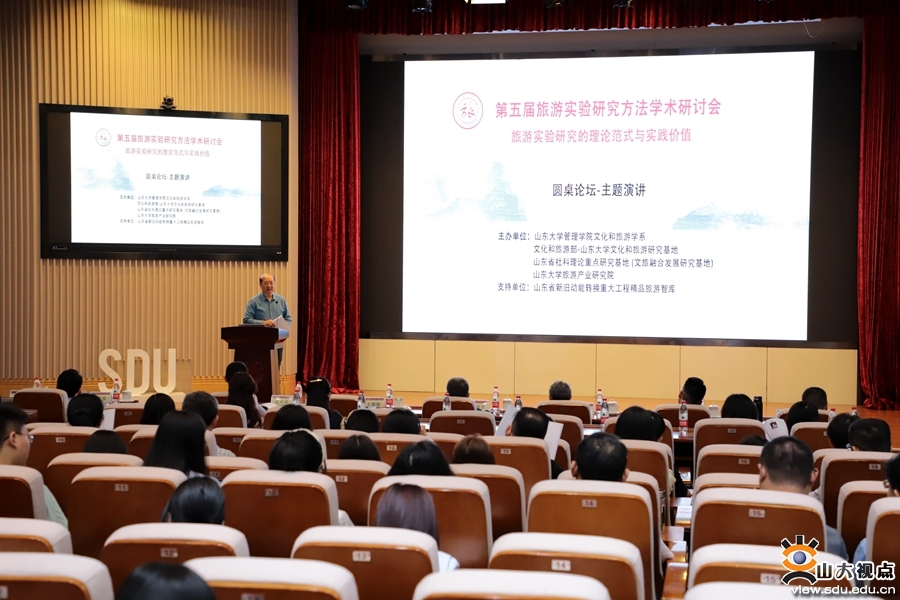
On the morning of September 23rd, the symposium was carried out in the form of a round-table forum. Five guests from five universities across China gave keynote speeches to discuss the series of hypotheses, theories, guidelines and methods of the experimental research paradigm in tourism, and Professor Wang Degang from the School of Management presided over the symposium.

Professor Xie Yanjun from Hainan University gave a keynote speech on “Empirical Research in Tourism from Knowledge Types”. Starting from the thinking of “Scholars’ Confusion” and introducing the type of “knowledge”, on the basis of the full introduction of empirical research and experimental method, he revealed the relationship and essential difference between the two, and further explained the common characteristic of research, “starting from the problem”. With the form of Chinese and Western comparisons, Professor Xie explained the connotation of the two types of knowledge, “analysis and synthesis”, and summarized the unity of the theory of knowledge with “my view of knowledge”, “my view of empirical evidence” and “my view of experiment”.
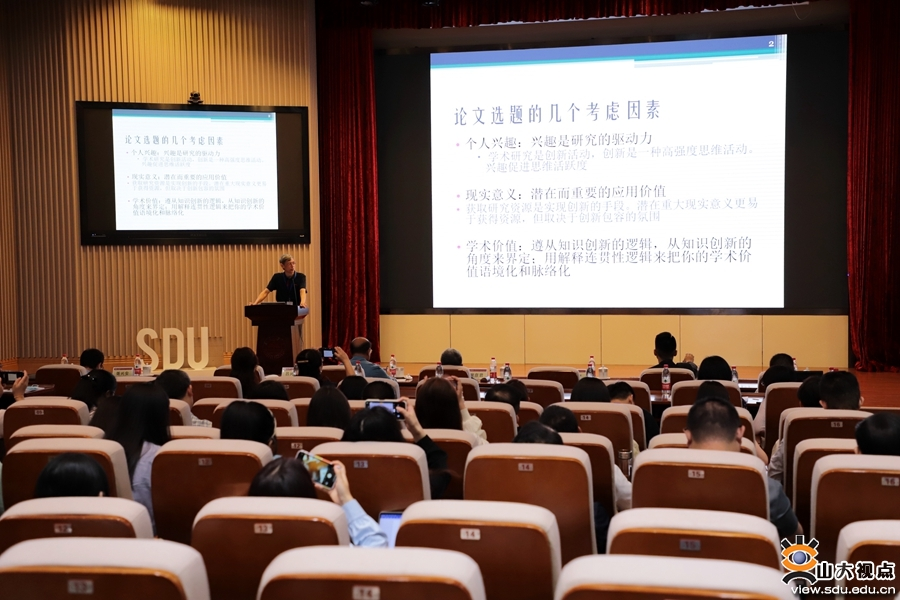
Professor Wang Ning from Sun Yat-sen University gave a keynote speech on “Explaining the Logic of Coherence and the Construction of Research Problems”, emphasizing the importance of research problem clarity, focusing on the two themes of “Logic of Coherence” and “Construction of Research Problems”, and deconstructing the linkages between the two themes, such as “knowledge production, scientific inputs, incoherence, and internal and external confusions”. Professor Wang concluded that the choice of thesis topics should be driven by personal interest, knowledge innovation should be based on knowledge stock, and stock association should be used as a way to expand the chain of coherent academic research.
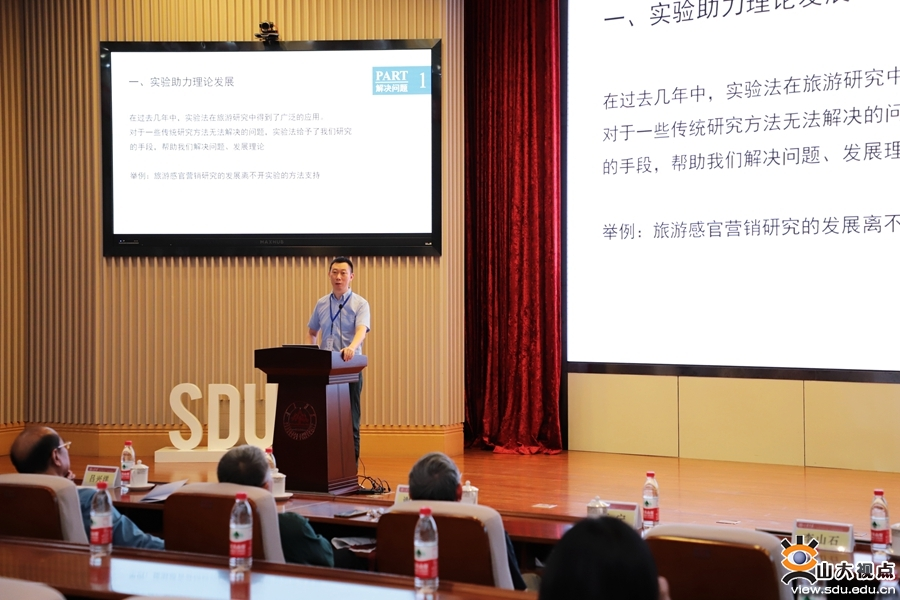
Professor Lyu Xingyang from Southwestern University of Finance and Economics gave a keynote speech on “From Technology Reference to Paradigm Reference: Rethinking Experimental Research in Tourism”, with the characteristics of the development of tourism experiments in the past four years, coming to the conclusion that “experiments help the development of theories”. He also took “sensory output”, “choice behavior” and “neuroscience and technology” as examples to elaborate the embodiment of tourism experimental research in terms of technology reference. Professor Lyu pointed out that paradigm reference has a promoting effect on the development of experimental research in tourism, and explained the three related paradigms in psychology including “Stroop paradigm”, “Go Nogo paradigm” and “Antisaccades paradigm” .
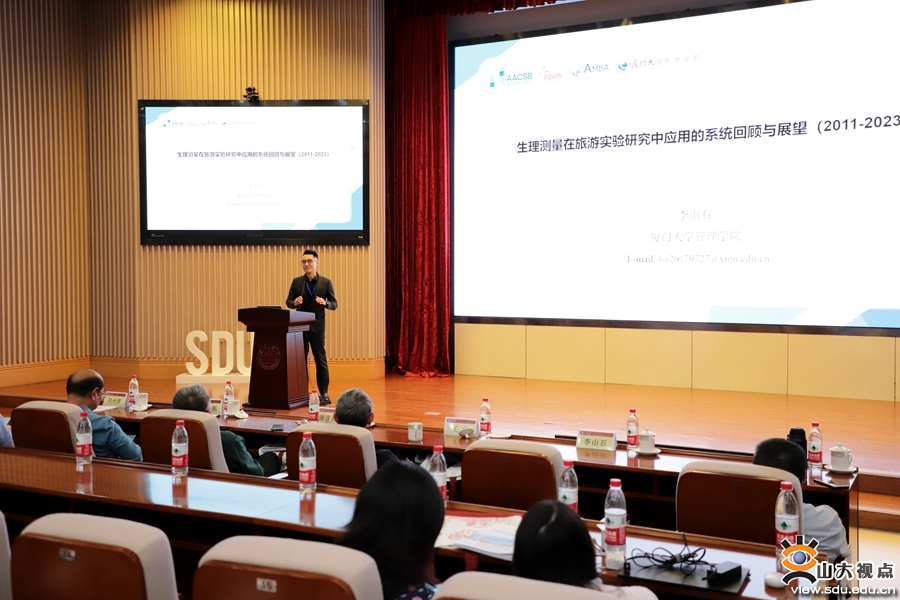
Associate Professor Li Shanshi from Xiamen University gave a keynote speech on “Systematic Review and Prospect of Physiological Measurement in Experimental Research in Tourism", summarizing the typical characteristics of different experimental measurement methods, experimental design, current applicable topics, physiological data interpretation, etc. from the perspective of systematic review, and introducing the connotation of biometrics and the path of combining with experiments in detail. Associate Professor Li advocated exploring the “Significance of Experimental Methods in Tourism Research”, introduced the “Essential Features of Experimental Methods”, and analyzed the correlation between medical research and tourism research. He also put forward 8 guidelines for action from the perspectives of “Tourism Methods for Tourism Research” and “Tourism Methods for Tourism Industry”.
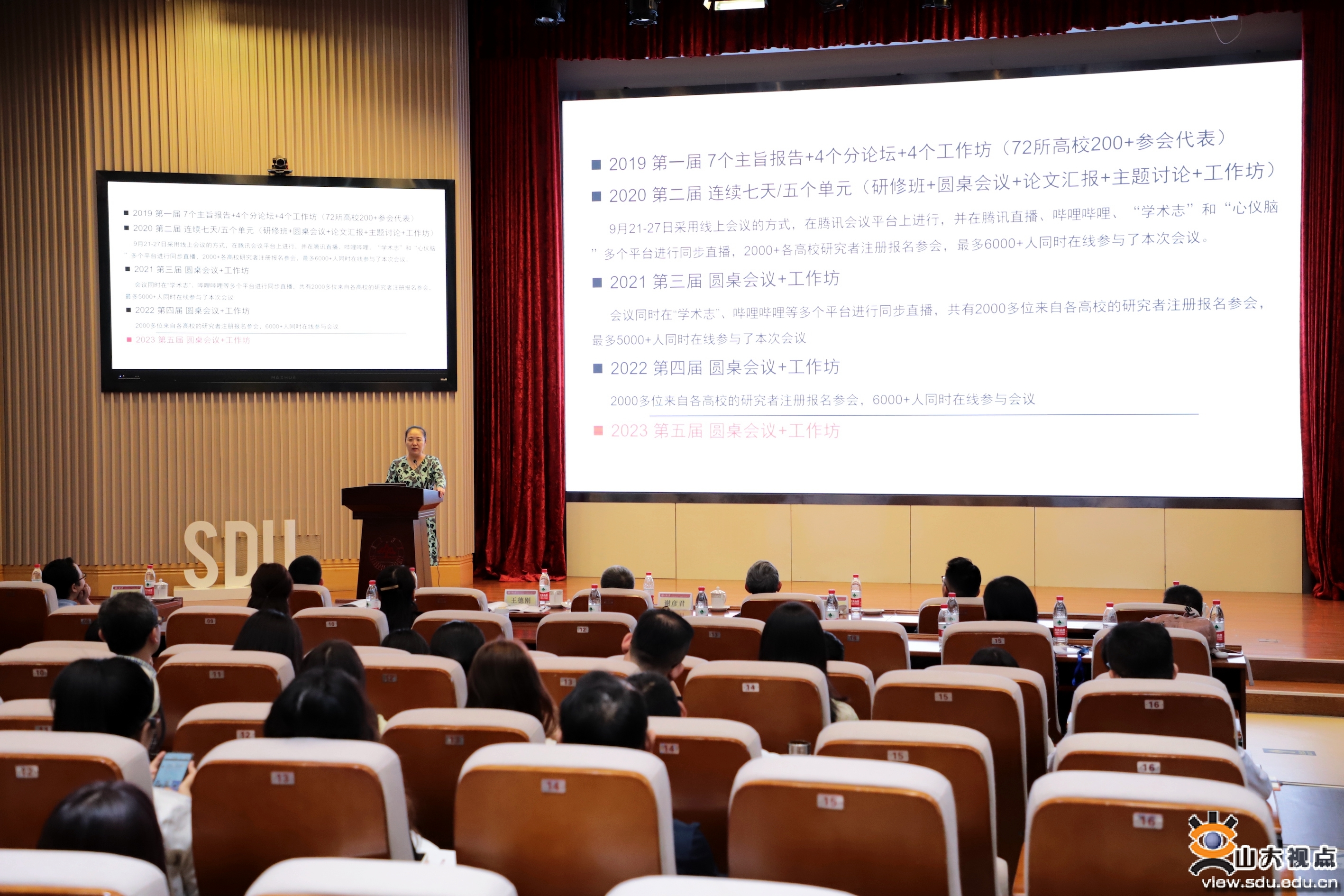
Professor Huang Xiaoting from Shandong University gave a keynote speech on “The Significance of Experimental Research Methods in Tourism Research”, pointing out the significance of the symposium and the value of the continuity of academic exchanges. She focused on “experimental research methodology" and illustrated the scientific and feasibility of applying experimental research to tourism research with the integration of multiple disciplines as the main line. At the end of the speech, Professor Huang explored the role of experimental methods in “tourism discipline” and “tourism industry”, and talked about the proposition that experimental methods can empower tourism research.
On the afternoon of the 23rd and the morning of the 24th, the beginner, technical, intermediate and advanced tourism experiments workshops were held with eight scholars providing referenceable and replicable methods and techniques of operating tourism experiments in a more representative and visual way to improve the ability of the tourism experimental research to explain and predict the phenomena.
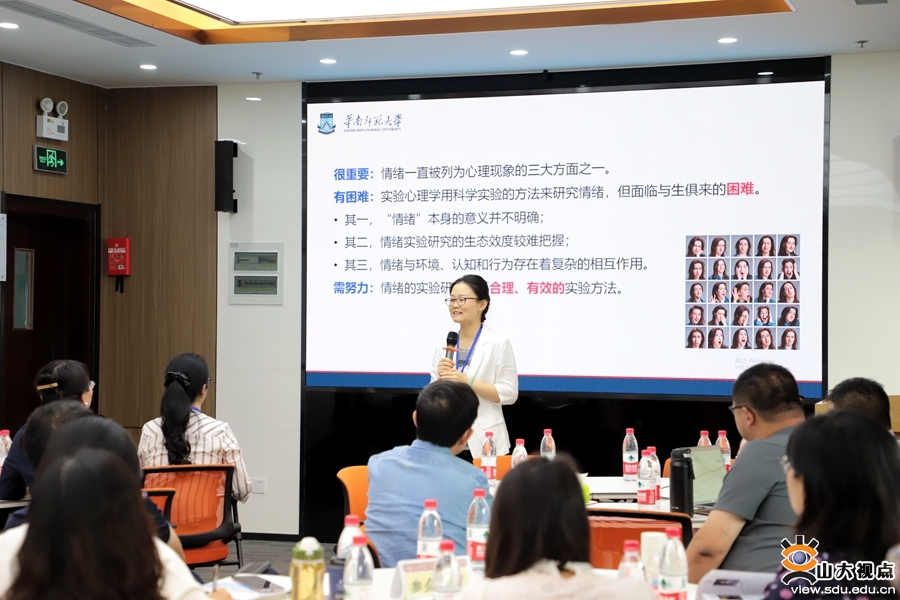
With the theme of “Classical Review of Emotional-Psychological Experiments”, Associate Professor Xiong Wei from South China Normal University, focusing on the relationship among the three centers of “interpretation of emotions, psychologically related experiments, and research in the field of tourism”, explained the generation of emotions with “Schachter’s Experiment” and proposed thoughts on tourism with the help of related research. Associate Professor Xiong explained the method of emotion measurement from three perspectives, “subjective experience”, “facial expression” and “physiological indicators”, and took the relevant research in the field of tourism as an example to illustrate the internal relationship between the emotional psychology and experimental research in tourism. At the end of the speech, Associate Professor Xiong introduced nine subparadigms under the two main paradigms, emotion induction paradigm and emotion initiation paradigm, building a bridge between emotional psychology and experimental research in tourism from theory to practice.
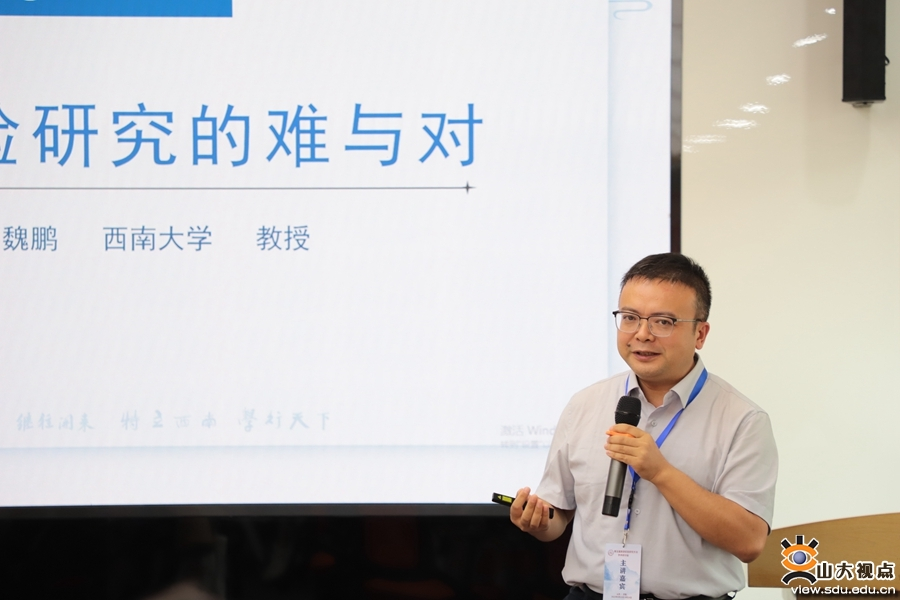
With the theme of “The Difficulty and Solution of Experimental Research in Tourism”, Professor Wei Peng from Southwest University, exchanged academic views with the guests around four parts, namely, “the difficulty of experimental research in tourism”, “experimental improvement--subtlety and integration”, “experiment and practice--application and mutual verification” and “real-life prediction”. He emphasized the difficulties and solutions in tourism experimental research, and put forward the special characteristics of tourism experimental research. He also introduced in detail the methods of experimental prediction of real-life scenarios, and provided suggestions for the future practical application of tourism research from individual experiments to overall prediction in the form of case studies.
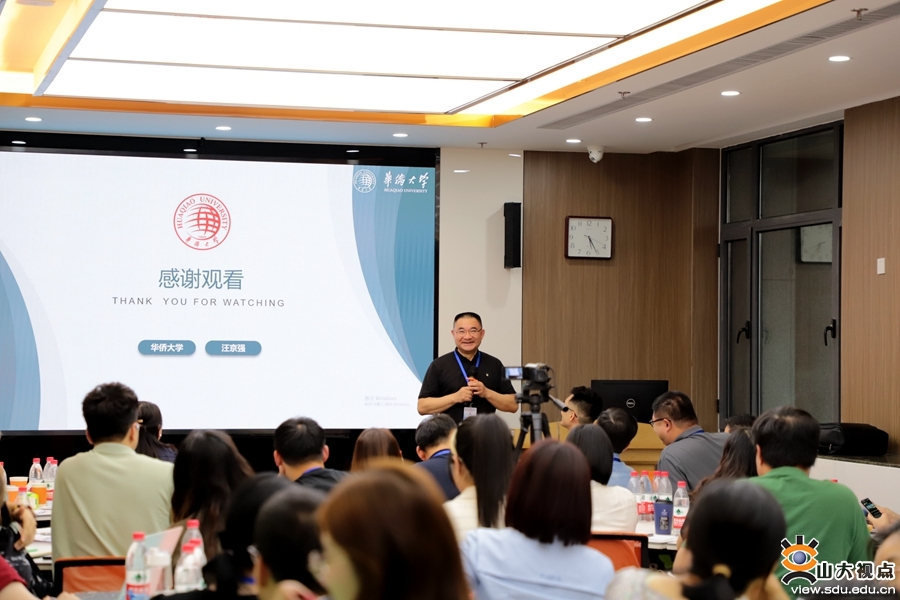
With the theme of “Application and Experimental Design of ERPs Experiment in the Field of Tourism and Hotel”, Professor Wang Jingqiang from Huaqiao University, based on a large number of papers and experiments, explained the application of ERPs (Event-Related Potentials) Experiment in the field of tourism and hotel, and summarized the current research results of the experiment. He introduced the experimental methodology in detail from the introduction of the paradigm, preparation of experimental stimulus materials, procedure and precautions, interpreted and summarized the experimental results, and cited previous and latest researches to show the existing research concepts and results in the field.
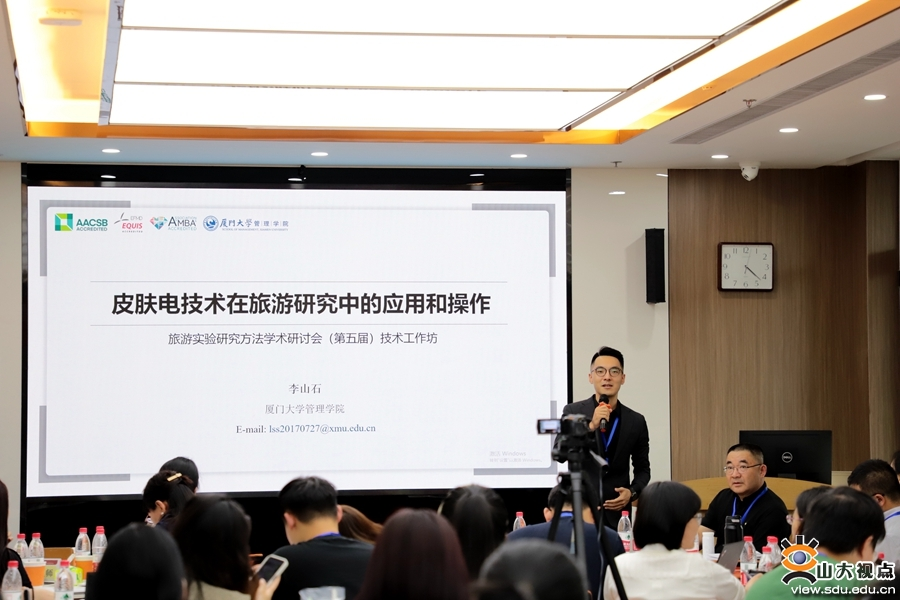
With the theme of “Application and Operation of Electrodermal Activity Technology in Tourism Research”, Associate Professor Li Shanshi, emphasized the importance of emotional and physiological measurement methods in tourism and hotel research, and introduced the application of Electrodermal Activity (EDA) measurement technology in tourism research from the perspective of research environment, scenario setting, sample selection, and theoretical foundations in detail. He also listed the methods of external environment measurement, motion interference rejection, physiological data conversion and computation, and tourist feature recognition, and shared his opinions on the application of the technology to the field of tourism and hotel.

With the theme of “Exploring the Path of Theorizing Tourism Research”, Professor Xie Yanjun took Earl Babble as an example to introduce the program design of the experimental method, discussed the “Seeking Solace” Theory with participants with the thought jump, “single-plank bridge”, and also explained the unique importance of practice for theory.
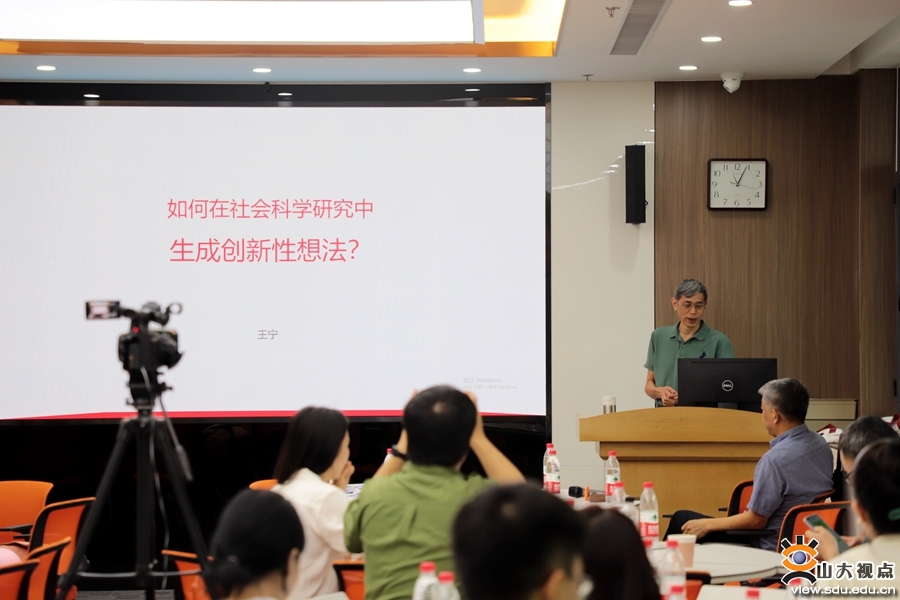
With the theme of “How to Generate Innovative Ideas in Social Science Research”, Professor Wang Ning, focusing on the cultivation of innovative thinking and aiming at the improvement of innovation ability, conducted experience sharing, case demonstration and on-site discussion, providing scholars with visualization and feasible paths for innovative research. He emphasized that the preparation of innovation needs to distinguish three types of “explanation”, put forward the guidance of innovation “to be different, but not too different”, and believed that the grand theory should be turned into a ladder of innovation, and innovation should be carried out in the middle theory system. Professor Wang put forward nearly 20 specific requirements of the progressive innovation revelation method, emphasizing the importance of “independent innovation of scholars”.
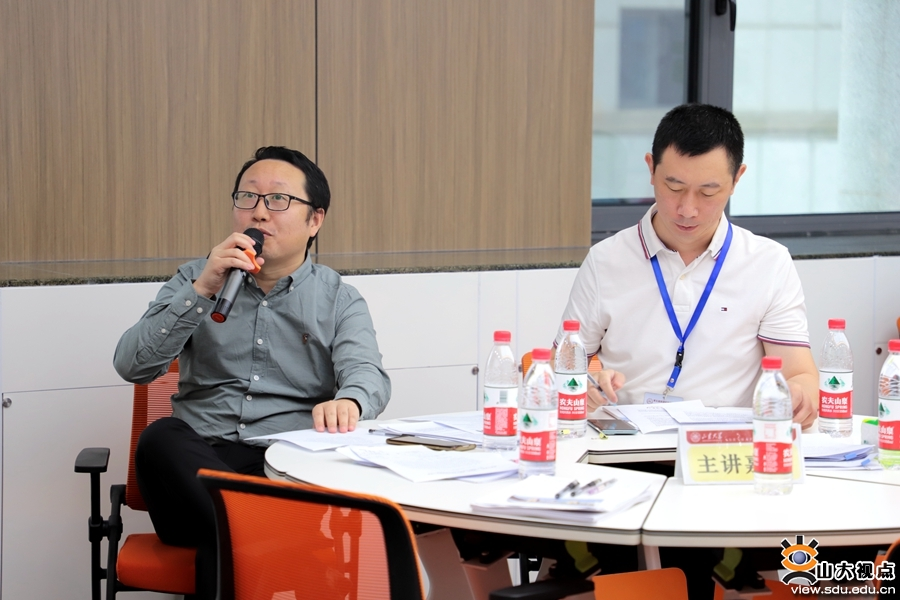
The intermediate workshop of Professor Lyu Xingyang and Professor Xu Xing'an from Hainan University utilized the three-in-one model of “presentation-critique-communication”, inviting participants to share and present. Professor Lyu and Professor Xu combined their expertise to systematically and thoroughly comment on the experimental designs of the participants, suggested problems and improvements for the research topics shared by the six scholars, and coached the participants to improve and refine their experimental designs in terms of hypotheses, experimental designs, and experimental operations. Among them, Zhao Kang from Yanshan College of Shandong University of Finance and Economics chose the hot topic of “Zibo Barbecue” to explore the factors influencing the environmental responsibility behavior of tourists in the city made famous on-line. Zhu Mingyao of Shandong Normal University took “host-guest interaction” as the key to explore the relationship between host-guest interaction and place attachment, and analyzed the choice of residents’ tourism behavior from the perspective of social relationship. Zhang Minyi from City University of Macau took “The Current Society under Slow Variety Show” as the theme to explain how media consumption affects consumer values and explore how the integration of culture and tourism can drive tourism development in tourist destinations. Weng Lisheng from Nanjing Agricultural University studied the influence of emotional experience, architectural color and humanistic landscape on tourists’ choice of tourism behavior under different cultural backgrounds from the perspective of color and vision. He Jun’an of Hengyang Normal University elaborated on the advancement of pro-social behaviors of study tours based on the sustainability framework and using ERP technology. Wang Ke from Sun Yat-sen University used different cases to demonstrate multi-dimensional emotional experience, in which the experimental design focused on combining with experimental methods and use data to explain behaviors scientifically.
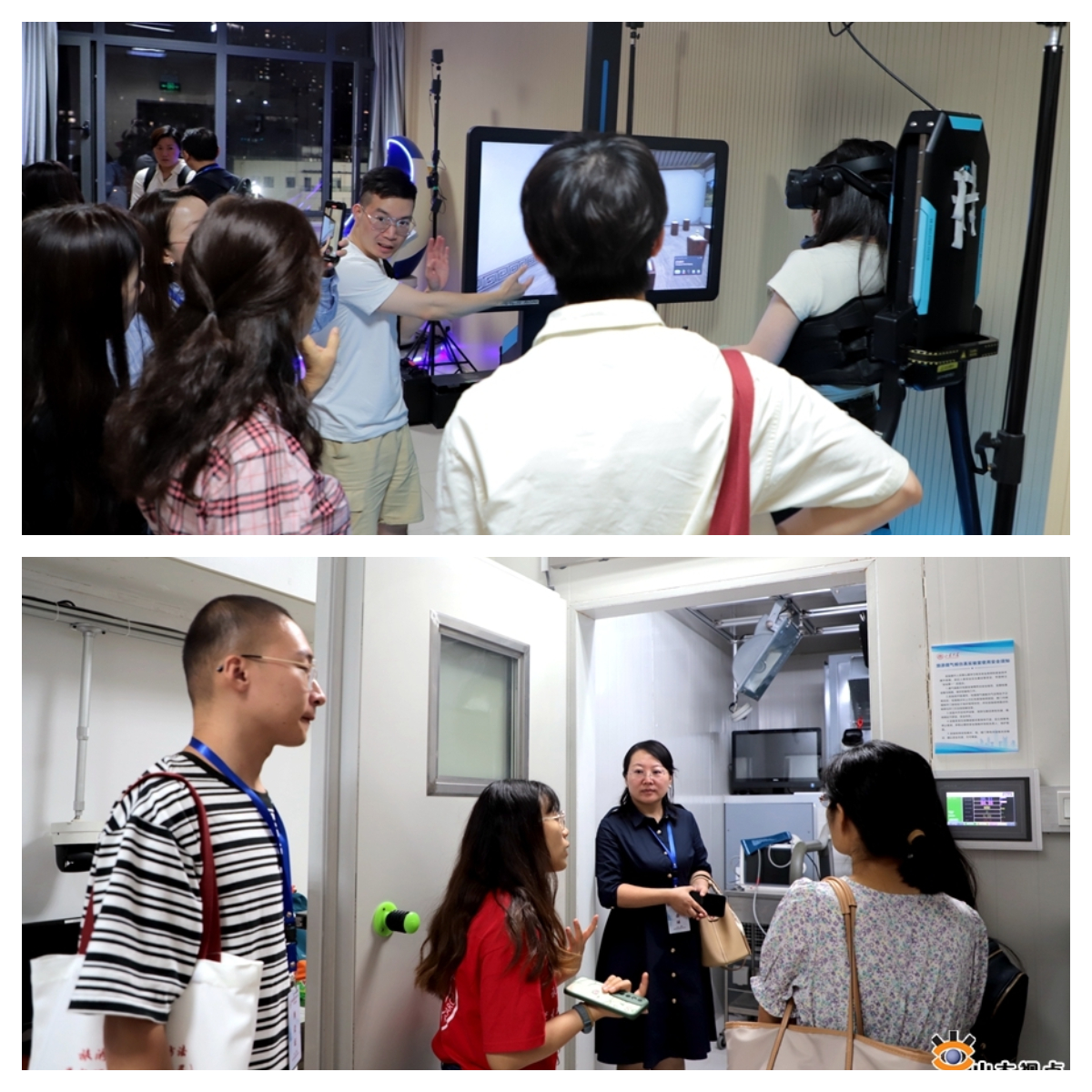
During the event, the guests visited the “13th Five-Year” Shandong Provincial Key Laboratory of Higher Education, Shandong University Digital Culture and Travel Behavior Liberal Arts Laboratory, to experience the VR Omni-directional treadmill, VR Eye Tracking Instrument, 9DVR Eggshell Warehouse, Microclimate Simulation Cabin, EEG Acquisition and Analysis System and Portable Near Infrared Devices, and conducted in-depth discussions and exchanges on the laboratory applications, experimental design and academic research.
The Symposium on Experimental Methods in Tourism initiated by the Department of Culture and Tourism of the School has been held for five times so far. It invites scholars and researchers from universities to gather together to share cutting-edge academic ideas and latest research results in the field of tourism experiments, build a platform for sharing and exchanges, contributing to the development of tourism experimental research and research progress of tourism and cultural industries.